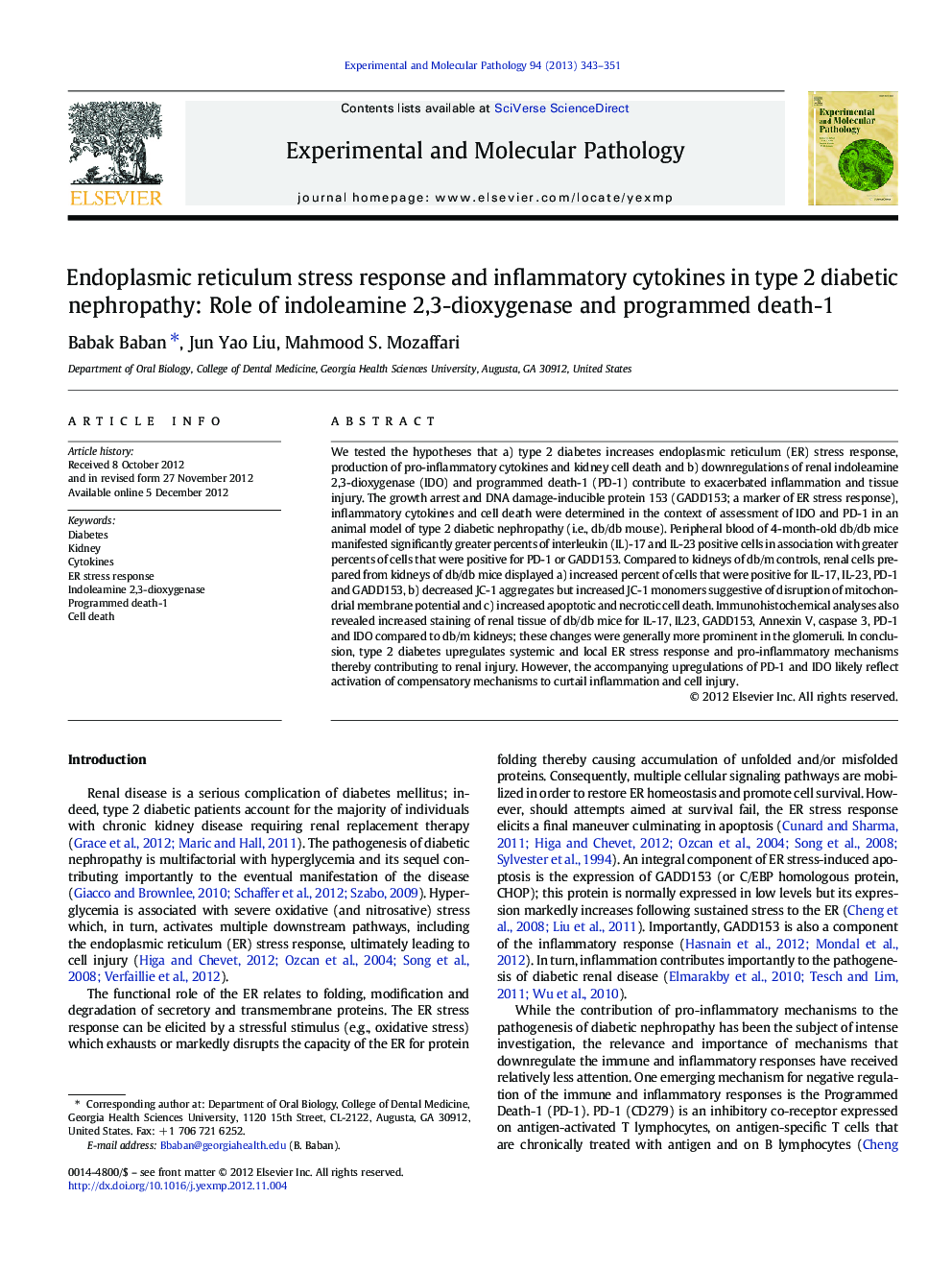| Article ID | Journal | Published Year | Pages | File Type |
|---|---|---|---|---|
| 2774958 | Experimental and Molecular Pathology | 2013 | 9 Pages |
We tested the hypotheses that a) type 2 diabetes increases endoplasmic reticulum (ER) stress response, production of pro-inflammatory cytokines and kidney cell death and b) downregulations of renal indoleamine 2,3-dioxygenase (IDO) and programmed death-1 (PD-1) contribute to exacerbated inflammation and tissue injury. The growth arrest and DNA damage-inducible protein 153 (GADD153; a marker of ER stress response), inflammatory cytokines and cell death were determined in the context of assessment of IDO and PD-1 in an animal model of type 2 diabetic nephropathy (i.e., db/db mouse). Peripheral blood of 4-month-old db/db mice manifested significantly greater percents of interleukin (IL)-17 and IL-23 positive cells in association with greater percents of cells that were positive for PD-1 or GADD153. Compared to kidneys of db/m controls, renal cells prepared from kidneys of db/db mice displayed a) increased percent of cells that were positive for IL-17, IL-23, PD-1 and GADD153, b) decreased JC-1 aggregates but increased JC-1 monomers suggestive of disruption of mitochondrial membrane potential and c) increased apoptotic and necrotic cell death. Immunohistochemical analyses also revealed increased staining of renal tissue of db/db mice for IL-17, IL23, GADD153, Annexin V, caspase 3, PD-1 and IDO compared to db/m kidneys; these changes were generally more prominent in the glomeruli. In conclusion, type 2 diabetes upregulates systemic and local ER stress response and pro-inflammatory mechanisms thereby contributing to renal injury. However, the accompanying upregulations of PD-1 and IDO likely reflect activation of compensatory mechanisms to curtail inflammation and cell injury.
